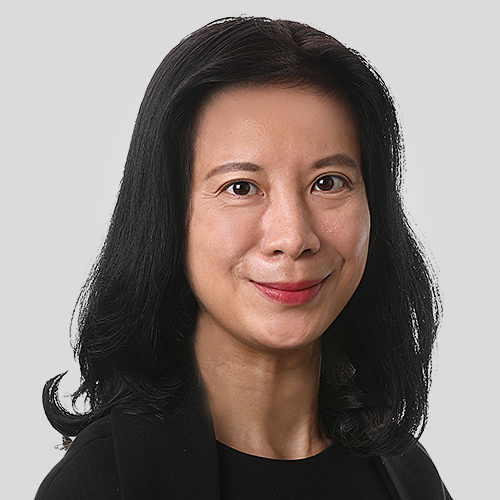The last few years have been challenging times for investors in mainland China. With the collapse of the real estate market, the lackadaisical performance of domestic equities, volatility and complexity of investing in domestic bonds, as well as restrictions on offshore investments, there seems to be nowhere for most investors to go.
This is where onshore exchange-traded funds (ETFs) backed by solid offshore-based assets come in. In January 2024 alone, Chinese investors pumped an estimated US$2 billion into 33 onshore ETFs that tracked foreign benchmarks, the biggest monthly inflow since 2020, with more 50% flowing into US stocks, according to Bloomberg data.
In 2022, Chinese investors invested about US$120 billion in ETFs tracking foreign stock and bond indexes, up 40% from about US$80 billion in 2020. The most popular ETFs with foreign benchmarks track the S&P 500, the MSCI Developed Markets Index, and the Bloomberg Global Aggregate Bond Index.
While foreign ETFs provide Chinese investors with diversification and a relatively easier access to overseas assets, the total volume of Chinese investment in foreign ETFs is still relatively small compared to the size of China's overall investment market, estimated at over US$20 trillion as of 2022.
This trend opened opportunities for ETF providers who are eager to cash in on the strong demand for onshore ETFs tracking foreign benchmarks. But this space has its own challenges. While barriers to listing onshore ETFs are relatively light, packaging the proper product demands more time, effort, and resources. Plus, such products are subject to quota restrictions under China’s Qualified Domestic Institutional Investor (QDII) programme.
Nevertheless, the demand for such products is so strong that on July 16, two new ETFs tracking Saudi Arabian equities were launched on the Shanghai and Shenzhen stock exchanges, culminating a multi-year effort at a pioneering cross-border investing channel that bridged the Hong Kong, Chinese, and Saudi financial markets.
Hong Kong connection
The two new ETFs are the China Southern Asset Management CSOP Saudi Arabia ETF, which was listed in Shenzhen, and the Huatai-PineBridge CSOP Saudi Arabia ETF, which was listed in Shanghai.
Both ETFs were produced by CSOP Asset Management (CSOP AM), the Hong Kong-based subsidiary of the publicly listed and Guangdong government-backed China Southern Fund Management. CSOP AM is a leading ETF provider in Asia-Pacific with about 50 ETFs in the region as of 2023.
China Southern Asset Management and Huatai-PineBridge are leading domestic fund managers in China. Both partnered with Hong Kong’s CSOP AM to launch their respective Saudi ETFs.
Chinese investors immediately began pouring money into the new ETFs, with the China Southern Asset Management CSOP Saudi Arabia ETF raising US$87 million and the Huatai-PineBridge CSOP Saudi Arabia ETF raising US$82 million on the first day of trading.
Since there are no direct linkages between the Chinese and Saudi stock exchanges at present, both ETFs will invest indirectly in the Saudi market through the Hong Kong-based CSOP Saudi ETF under a cross-listing scheme.
Cross-listing between China and Hong Kong refers to the process where shares listed on one market can also be listed on the other market, allowing for greater access to investors and enhancing trading liquidity.
In addition, the Hong Kong Exchanges and Clearing (HKEX) and the Saudi Stock Exchange (Tadawul) launched a Stock Connect scheme in 2019, which allows mutual stock market access between Hong Kong and Saudi Arabia.
Launched on November 29 2023, the Hong Kong-listed CSOP Saudi Arabia ETF tracks the FTSE Saudi Arabia Index, providing exposure to more than 50 leading large and mid-cap companies listed on Tadawul. This ETF comprehensively covers sectors including financials, basic materials, energy, and telecommunications, capturing the drivers of Saudi Arabia’s economy while providing diversified exposure.
The CSOP Saudi Arabia ETF is the result of a collaboration between CSOP AM and the Public Investment Fund (PIF), Saudi Arabia’s sovereign wealth and one of the world’s largest with an estimated US$620 billion in assets under management as of 2023.
Accurate market reflection
In an interview with The Asset, Wang Yi, head of quantitative investment and managing director at CSOP Asset Management, explains that the FTSE Saudi Arabia Index was selected as the benchmark for the CSOP Saudi Arabia ETF because it has a focused universe of constituent stocks that accurately reflects the concentration of the Saudi stock market. The index has achieved a significant return of 45.3% in the past three years.
“For the index provider, we analyzed all the indexes available in the market. One key reason why we chose FTSE is that the Saudi market only has 233 listed companies, and the FTSE index holds around 50 to 60 of these companies. What they do is they take the top companies by market cap and include them as index constituents. We compared that with another index provider who takes the top 100 stocks as their index constituents. We think that an index with 100 constituent stocks when there are only 200 stocks in the universe is too much,” Wang explains.
At its debut back in November 2023, the CSOP Saudi Arabia ETF was billed as Asia-Pacific’s first ETF tracking Saudi shares. It generated much excitement at the Hong Kong stock exchange and raised US$1 billion in AUM with the PIF as its top investor.
Fast-forward to July 16 2024: The Saudi-focused ETFs saw enthusiastic response from investors when they debuted in Shanghai and Shenzhen, with both surging by the daily 10% limit on their first two trading days. They were then suspended on July 18 after their managers notified the exchanges that the premium of their share price over their net asset value had become excessive.
The two Saudi ETFs' success was also due to the fact that investors could access the funds through the highly popular online platforms Snowball and Premia.
Apart from their diversification benefits, the Saudi ETFs were also attractive to investors because they pay high dividends.
“From the nature of the ETF, one selling point for the A-share investors is that it is high dividend paying by nature, and that’s because most of the shares for investment in the Saudi market are concentrated on banks or financials. From the index level, dividends are around 3%-4%, and for individual stocks, about 4%-6%. So overall, I think the constituents of the index are paying quite decent dividend yields, but it's going to be the function of the index itself. The ETF can be classified as a high-dividend ETF,” says Wang.
Strong economic fundamentals
Another key reason why Chinese investors find the Saudi ETFs attractive is the strong fundamentals of the Saudi economy.
“The Saudi capital markets are still developing but they are doing a lot of reforms to develop the market. In terms of economic development, they have offshore income from oil production, which they are reinvesting in their economy, and they are also implementing the proper fiscal policies which can result in quite decent economic growth,” he says.
However, Wang admits that Saudi Arabia as a market is not widely known to Chinese investors, although in recent years it has become an attractive investment destination because of its economic fundamentals.
“So we do a lot of analysis, present facts, give interviews and so forth. That’s because it’s quite important for A-share investors. You need to give them a lot of fundamental data, and also do a lot of client education for them to become familiar and understand where the product is coming from, the investment angle, and the logic. Through the roadshows we have been doing not only for retail investors, but also for institutional investors,” Wang says.









